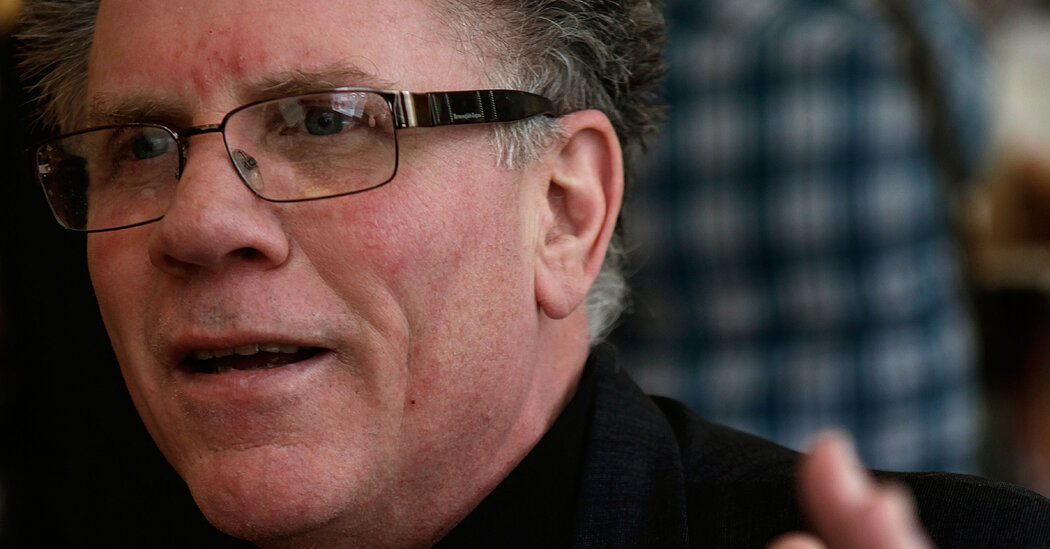Remembering Robert W. McChesney: A Pioneer in Media Critique
Date of Passing: March 25, 2023 | Age: 72
Life and Career
Robert Waterman McChesney, an influential media critic known for his left-leaning perspectives on journalism and corporate influence, died in Madison, Wisconsin, after battling glioblastoma, an aggressive form of brain cancer. He was 72 years old.
Born on December 22, 1952, in Cleveland, Ohio, McChesney grew up in Shaker Heights. He attended prestigious schools including Pomfret School in Connecticut and later earned a bachelor’s degree from Evergreen State College in Washington, focusing on politics and economics.
McChesney began his career in journalism as a sports stringer for the United Press International (UPI) and as an editor for The Seattle Sun. In 1979, he became the founding publisher of The Rocket, a Seattle music magazine that played a crucial role in the promotion of the grunge rock scene during the 1980s and 1990s. Following his journalistic endeavors, he pursued graduate studies at the University of Washington, eventually obtaining a Ph.D. in communications in 1989, after which he transitioned into academia.
He spent a decade at the University of Wisconsin-Madison before accepting a position at the University of Illinois Urbana-Champaign as the Gutgsell Endowed Professor in the communications department.
Contributions to Media Critique
Over the course of his career, McChesney wrote extensively on the interplay between media and democracy, producing more than a dozen books and numerous articles. His seminal work, “Rich Media, Poor Democracy” published in 1999, argued that media consolidation undermined democratic principles by restricting diverse viewpoints in news coverage.
In “Digital Disconnect: How Capitalism Is Turning the Internet Against Democracy,” released in 2013, he critiqued the promise of the internet as an open platform for democracy, instead highlighting how it had reinforced corporate control over information dissemination.
McChesney attributed the challenges facing journalism to the profit-driven nature of capitalism, stating, “The profit motive, commercialism, public relations, marketing, and advertising — all defining features of contemporary corporate capitalism — are foundational to any assessment of how the Internet has developed and is likely to develop.”
Advocacy for Non-Profit Media
An outspoken advocate for media reform, McChesney proposed that the U.S. government should issue $200 vouchers to citizens for donations to non-profit news organizations of their choice. This was part of his broader vision advocating for the public’s role in supporting unbiased journalism, reflecting his strong belief that democracy thrives on informed citizenry.
He was also actively involved in political campaigns, notably supporting Senator Bernie Sanders during his presidential bids, and collaborated with industry peers to highlight media discrepancies and push for reforms.
Legacy and Recognition
McChesney’s work garnered him a reputation as a formidable voice against corporate power in media. In 2006, he was listed among the “101 Most Dangerous Academics in America” by conservative writer David Horowitz, while being recognized in 2008 by Utne Reader as one of the “50 Visionaries Who Are Changing Your World.”
His later writings, including “People Get Ready: The Fight Against a Jobless Economy and a Citizenless Democracy” (2016), co-authored with John Nichols, forecasted the implications of artificial intelligence on labor markets, emphasizing the potential for technology to exacerbate unemployment and disenfranchisement.
Survivors
McChesney is survived by his wife, Dr. Inger Stole, their daughters, Amy and Lucy McChesney, and his brother, Samuel P. McChesney III. His contributions to media theory and advocacy for quality journalism are expected to resonate within the field for years to come.


